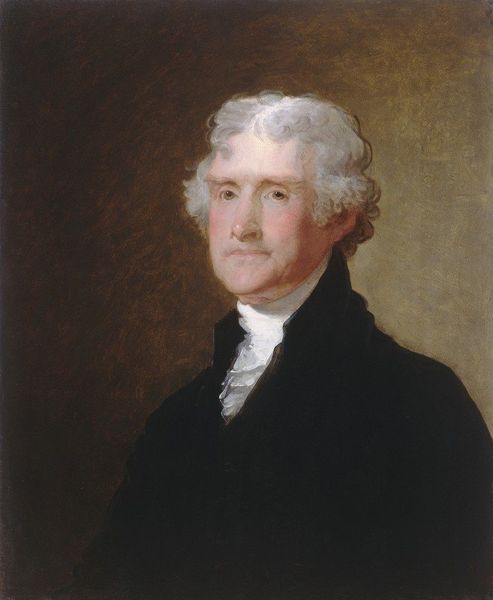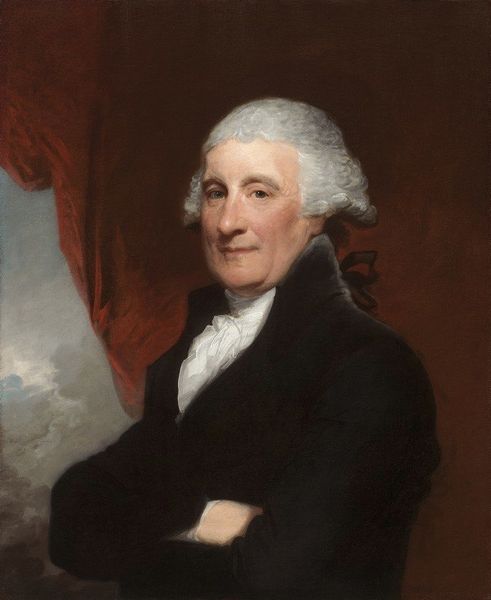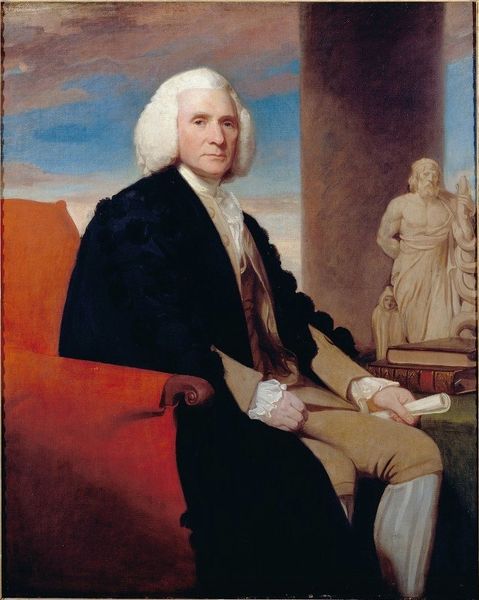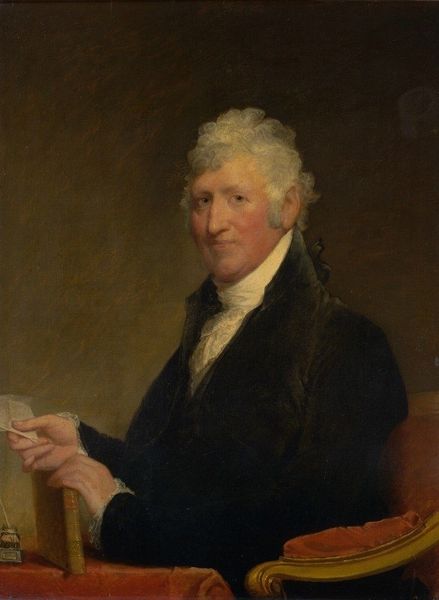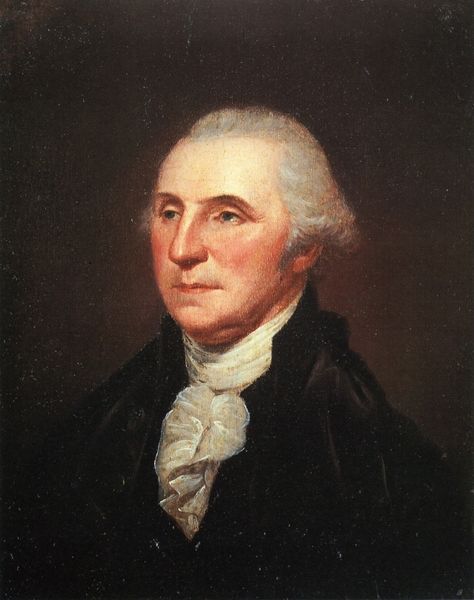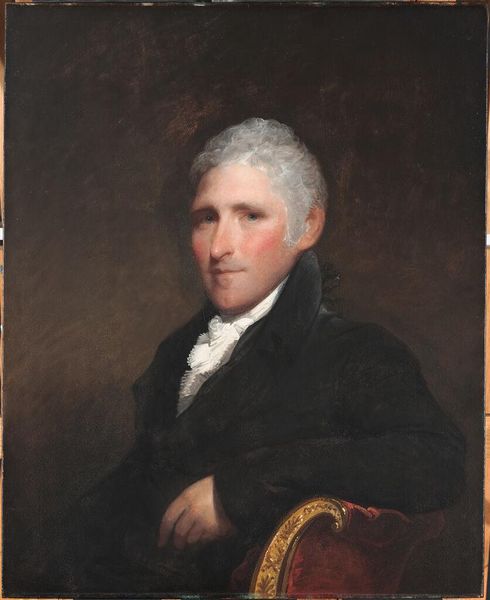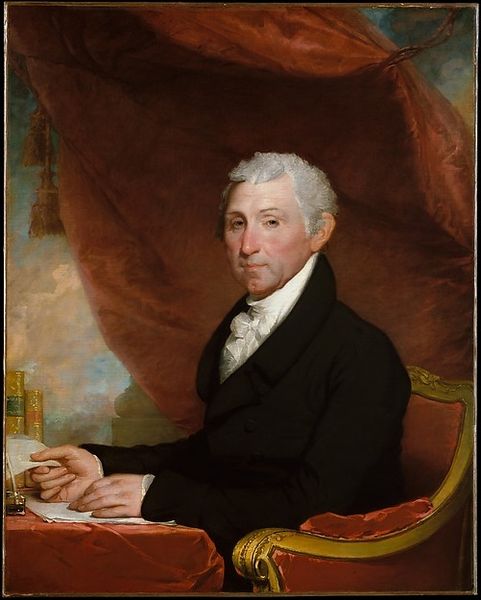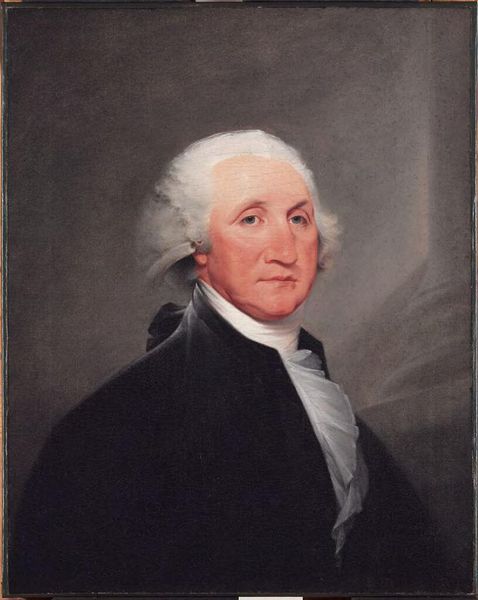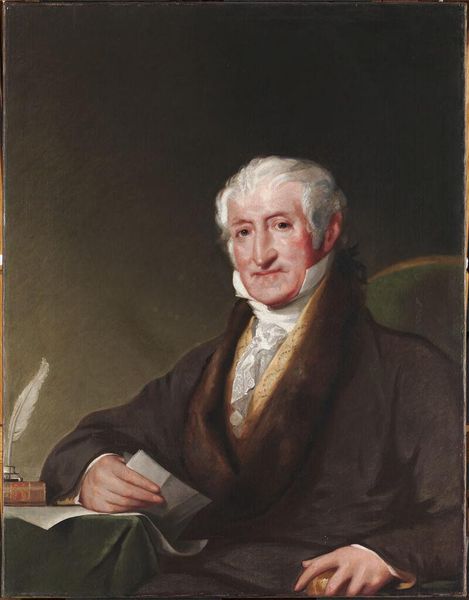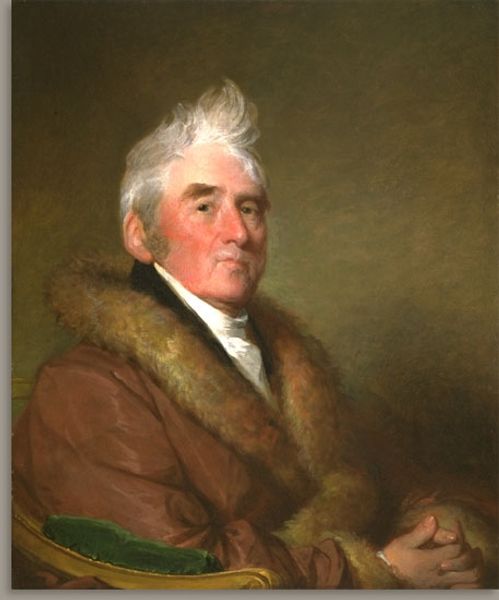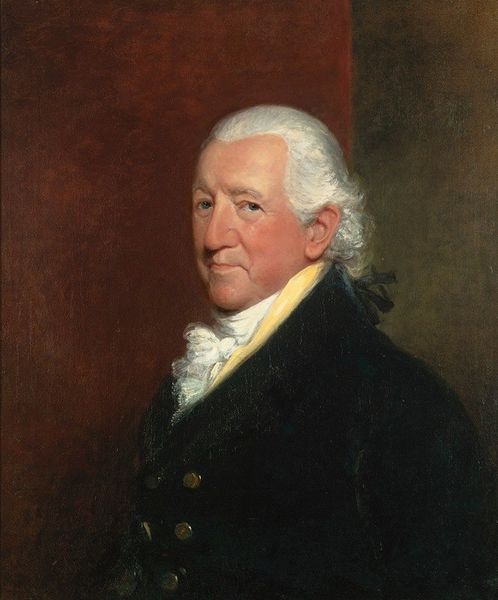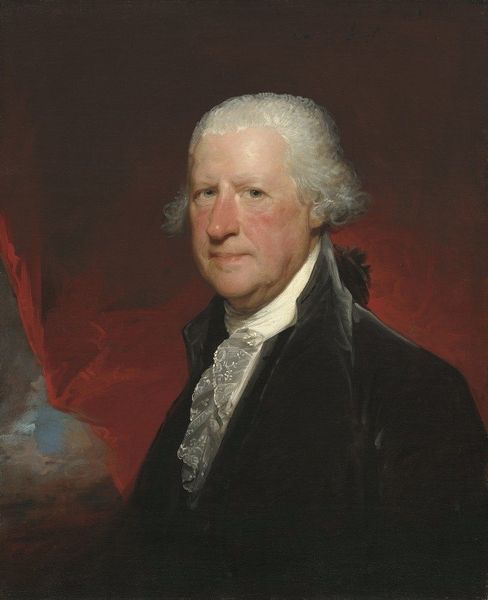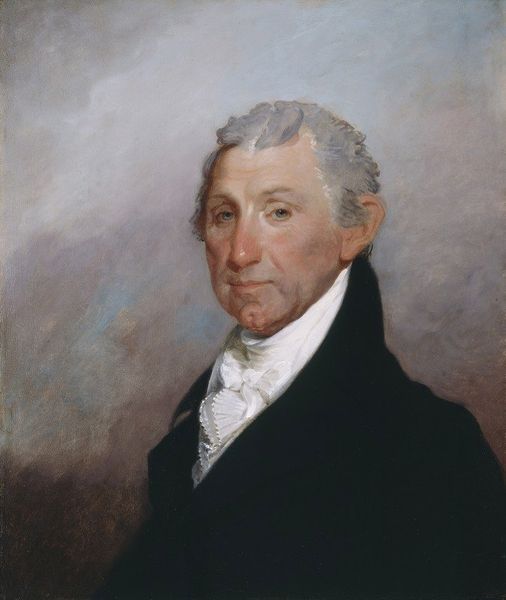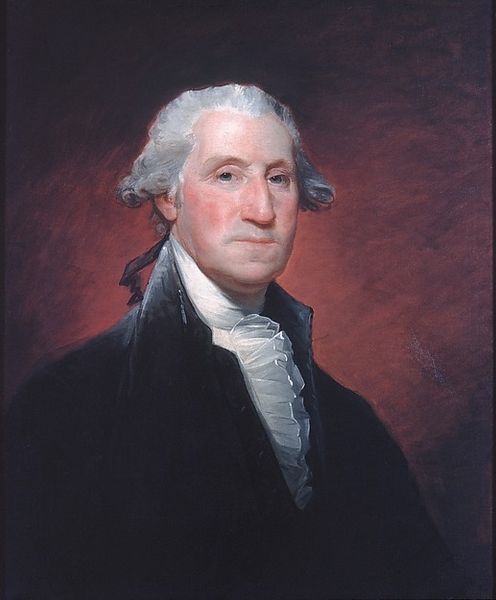
painting, oil-paint
#
portrait
#
neoclacissism
#
painting
#
oil-paint
#
history-painting
#
academic-art
Copyright: Public domain
Gilbert Stuart's portrait of Thomas Jefferson presents us with an image of composed authority, rendered through the classical portrait format. Notice how the composition is structured around a play of textures and forms: the smoothness of Jefferson's face contrasts with the rougher brushwork of the drapery behind him. This contrast draws our eye to the face, the focal point, and perhaps mirrors the duality of Jefferson's character—the philosopher and the politician. The pillar and the books are included as symbols of intellect and stability. These features are depicted with almost geometrical simplicity and provide a sense of balance and order. The subdued palette of reds, blacks, and creams adds to the sense of restrained power. Stuart uses light to model Jefferson's face, creating highlights and shadows that suggest depth and complexity. Yet, the image’s formality and controlled palette might also be interpreted as a sign of the power structures inherent in portraiture. It reinforces Jefferson’s status while subtly engaging with the codes of representation of the period.
Comments
No comments
Be the first to comment and join the conversation on the ultimate creative platform.
